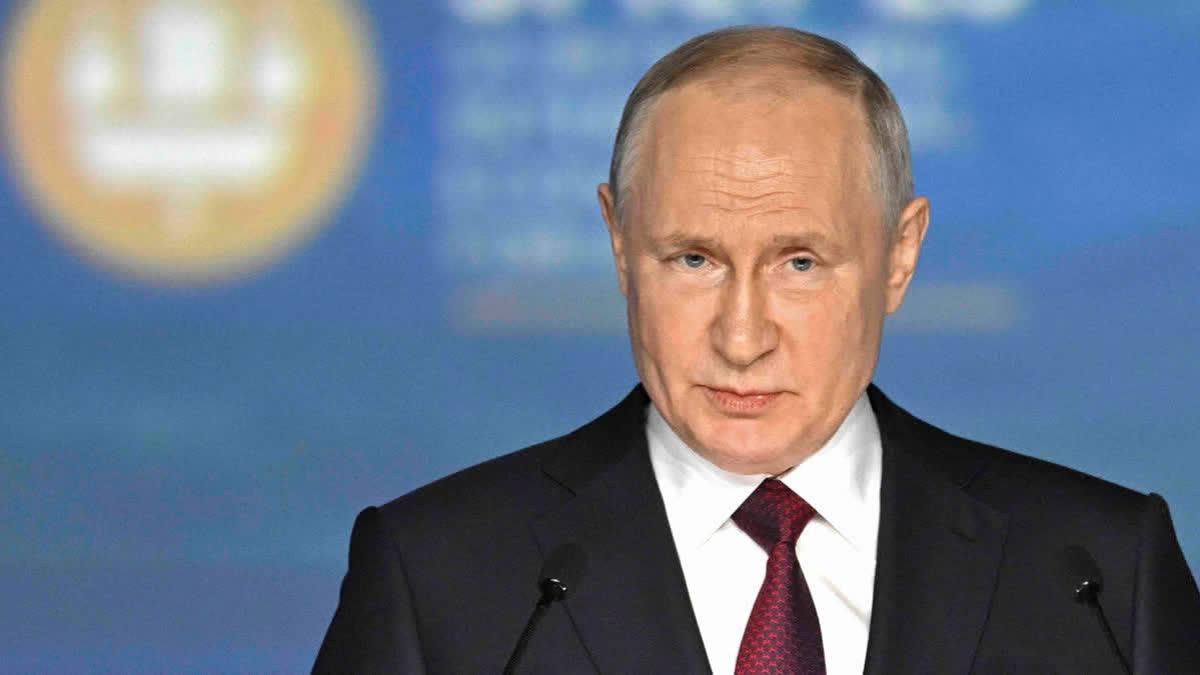New Delhi: Russian President Vladamir Putin on Tuesday said that Moscow intends to continue to deepen ties with members of the Shanghai Cooperation Organisation while adding that these ties are becoming stronger and more diverse. "Russia’s trade with SCO member states has increased by over one-third or 37 per cent, reaching a record high of US$263 billion last year. From January to April this year, it went up by another 35 per cent", President Putin said in his address at the SCO Summit hosted by India.
His address to a virtual Shanghai Cooperation Organisation Summit was his first to an international meeting since last month's mutiny in Russia. President Putin noted that Russia is making wider use of national currencies for mutual settlements. In particular, over 80 per cent of commercial transactions between Russia and the People’s Republic of China are made in Rubles and Yuan. The share of the Russian national currency in export transactions with all the SCO countries exceeded 40 per cent in 2022.
"Russia has been very active in implementing the SCO roadmap for the transition to national currencies in mutual trade, endorsed at the previous summit in Samarkand of Uzbekistan. It is important to continue this work, to take coordinated measures to remove regulatory barriers, to establish the necessary payment infrastructure, and to create an independent financial system", Putin said.
Also read:'No doublespeak on terror:' PM Modi takes veiled dig at Pakistan for 'financing terror' with Pak PM listening; Putin also slams terror at SCO summit
He further pointed out that the implementation of the SCO Economic Development Strategy to 2030 will further promote regional integration. Russia has been in favour of strengthening cooperation between the member states in investment, banking and finance, as well as in industry, energy, transport and logistics, agriculture, telecommunications, digitalization, and high tech, added President Putin.
Counterterrorism, countering extremism and religious radicalism, curbing drug trafficking and other types of smuggling and combating militant formations must remain a priority of the SCO, he said. He recalled Russia’s proposal to transform the regional SCO anti-terrorist structure into a universal centre that would be responsible for responding to the entire range of security threats.
Speaking about reforming SCO institutions, he mentioned that last year a decision was taken in Samarkand to upgrade the organisation’s activities, while preserving the basic foundations and principles of the SCO, to increase the efficiency of both the Heads of State Council and other bodies of the association, including in the economic area. Practical work has already begun and it is important not to delay this process.
Russia further supported the draft New Delhi declaration, which outlines goals and tasks related to the further comprehensive development of the interaction and consolidated approaches to relevant international issues.
